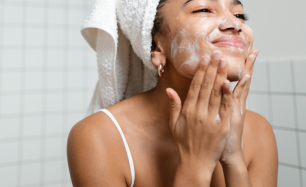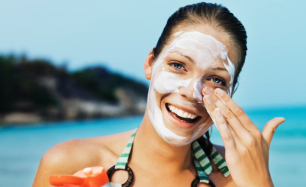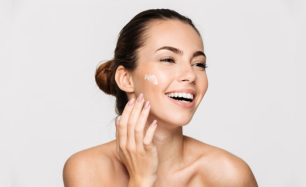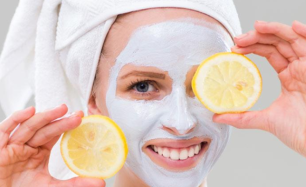The Impact of Diet on Skin Health: Foods to Embrace and Avoid
You’ve probably heard the phrase “you are what you eat”—and when it comes to your skin, it couldn’t be more accurate. While skincare products play a vital role in maintaining a healthy complexion, your diet has a direct and lasting impact on your skin from the inside out. What you put on your plate can either nourish your skin or contribute to issues like acne, dryness, inflammation, and premature aging.
Let’s explore how diet affects your skin and which foods to embrace—and avoid—for that healthy, radiant glow.

How Diet and Skin Health Are Connected
Your skin is your body’s largest organ, and it reflects your overall health. Nutrients from food help build and repair skin tissue, fight inflammation, maintain moisture, and protect against oxidative damage. When your diet lacks essential vitamins, antioxidants, and healthy fats—or is high in processed foods—it can trigger imbalances that show up as dullness, breakouts, or accelerated aging.
A balanced, nutrient-rich diet can do wonders for your skin, working in tandem with your skincare routine to help you look and feel your best.
Foods to Embrace for Glowing Skin
1. Fatty Fish (Salmon, Mackerel, Sardines)
These fish are rich in omega-3 fatty acids, which keep skin supple, reduce inflammation, and help combat dryness and redness. They also contain vitamin E and zinc—nutrients essential for maintaining the skin’s barrier and supporting healing.
2. Leafy Greens (Spinach, Kale, Swiss Chard)
Dark leafy greens are packed with vitamins A, C, and K—key antioxidants that support collagen production, protect against sun damage, and help reduce inflammation. They’re also high in water content, which aids in hydration.
3. Berries (Blueberries, Strawberries, Raspberries)
Loaded with antioxidants, berries help neutralize free radicals that can damage skin cells and cause premature aging. They also contain vitamin C, which boosts collagen and helps maintain skin elasticity.
4. Nuts and Seeds (Almonds, Walnuts, Chia Seeds, Flaxseeds)
These are great sources of healthy fats, vitamin E, selenium, and zinc. These nutrients help maintain skin moisture, protect against UV damage, and support a strong, resilient skin barrier.
5. Avocados
Rich in healthy monounsaturated fats, avocados deeply nourish the skin and help maintain elasticity. They’re also high in vitamin E, which helps protect the skin from oxidative stress.
6. Sweet Potatoes and Carrots
Both are high in beta-carotene, a precursor to vitamin A, which helps prevent dryness, supports skin renewal, and adds a healthy glow. Beta-carotene also acts as a natural sunblock, providing some protection from UV damage.
7. Green Tea
Known for its anti-inflammatory and antioxidant properties, green tea contains catechins that help protect the skin, reduce redness, and improve hydration and elasticity.
8. Water-Rich Fruits and Vegetables (Cucumber, Watermelon, Oranges)
Hydration is key to skin health. These foods help keep the skin plump and clear by boosting moisture levels and flushing out toxins.

Foods to Avoid (or Minimize) for Better Skin
1. Sugar and Refined Carbs (White Bread, Candy, Soda)
High-glycemic foods cause spikes in blood sugar, which can lead to increased oil production and inflammation—two major contributors to acne and premature aging. Excess sugar also breaks down collagen and elastin in a process called glycation, leading to sagging and wrinkles over time.
2. Dairy (Especially Milk)
While dairy doesn’t affect everyone the same way, it has been linked to breakouts in some individuals, particularly milk. It may influence hormone levels and increase oil production, which can trigger acne in sensitive skin types.
3. Fried and Processed Foods
These foods are often high in trans fats, salt, and preservatives, which can promote inflammation and oxidative stress—damaging skin cells and dulling your complexion.
4. Alcohol
Alcohol dehydrates the skin and can lead to puffiness, redness, and loss of elasticity over time. It also depletes important nutrients like vitamin A, essential for skin repair.
5. Excess Caffeine
While a moderate amount of coffee or tea is fine, too much caffeine can be dehydrating and disrupt your sleep—both of which impact skin health. Poor sleep, in particular, can lead to under-eye circles and a lackluster appearance.

Final Thoughts
What you eat doesn’t just fuel your body—it feeds your skin, too. By embracing a diet rich in whole, nutrient-dense foods and cutting back on inflammatory triggers like sugar, processed meals, and excess dairy, you’re supporting your skin’s natural ability to stay clear, firm, and radiant.
Think of your diet as an extension of your skincare routine. Glowing skin starts from within—and every bite counts.





